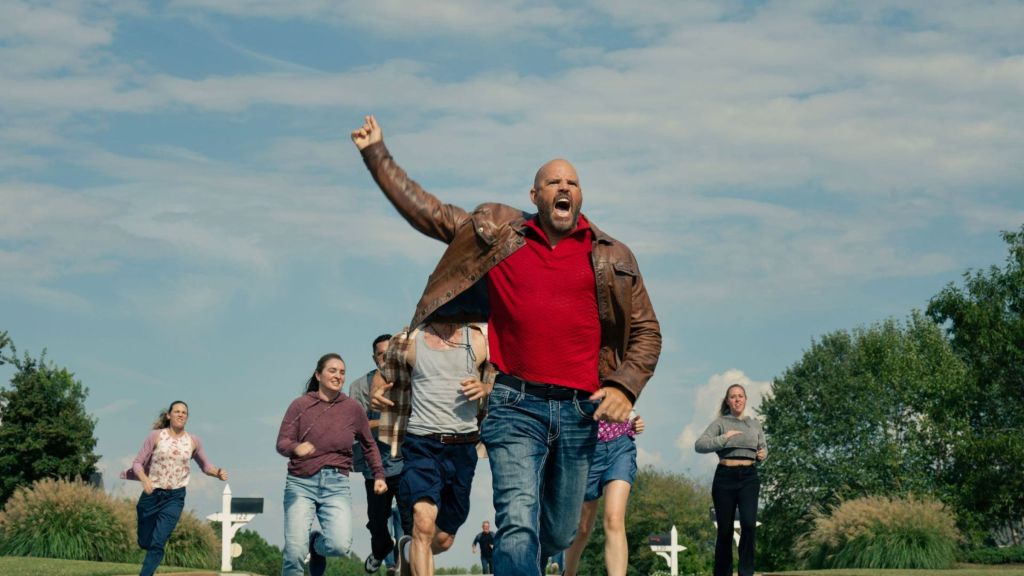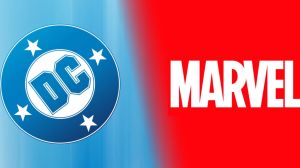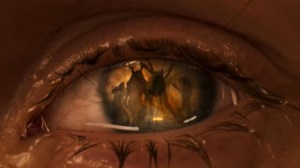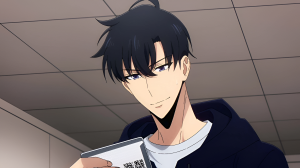Anything that seems too good to be true inevitably is. On the surface level, the access to an alternate universe provided by the Quantum Unfolding Chamber seemed like an impossible dream come true for Chris Smith aka Peacemaker. His father, Auggie Smith is seemingly quite nice and gentle and, even more shockingly, his brother Keith is alive and well. Chris now has a chance to reconnect with two people who have already been removed from his life, and one at a very young age. But from the jump of Peacemaker Season 2, viewers have been waiting for the other shoe to drop. There must be a catch to this other universe.
Videos by ComicBook.com
Now, Episode 6, “Ignorance Is Chris” has revealed just what that other shoe is and, frankly, it’s something almost no one saw coming even though it was right in front of our faces. And suffice to say, the revelation is going to make the final two episodes of Season 2 filled with a desperate scramble to get back home.
Spoilers for Peacemaker Episode 6 follow.
What Is the Big Reveal?

There is a reason Auggie Smith has seemed all nice and gentle. Throughout the whole season we have been introduced to a parallel dimension that has no people of color whatsoever. There’s no one here for him to hate. He’s a villain, and so is everyone around him.
This is something Emilia Harcourt notices almost instantly, though it doesn’t fully hit her until after her questioning by the parallel universe’s A.R.G.U.S. for having some of Vigilante’s seized cocaine on her jacket. Upon being released from questioning, she mentions it to Peacemaker, and we see it begin to dawn on him too. And, when he picks up an American flag that has the stars replaced with a swastika, we and he fully realize that this dimension is not one worth living in.
This whole time the so-called “Top Trio,” consisting of (other) Chris Smith’s Peacemaker-2, Auggie Smith’s Blue Dragon, and Keith Smith’s Captain Triumph, have been seen as heroes only to Caucasians. We haven’t seen them in action very much, so the question becomes, just what “heroic” things have they been doing?
James Gunn really pulled off something here. Television and movies for a very long time were almost entirely monoethnic. The protagonists of The Maltese Falcon, The Sound of Music, Dragnet, It’s a Wonderful Life, Gunsmoke and other similarly popular 1930s, ’40s, and ’50s project were all white. It wasn’t until the ’60s, when stuff like George A. Romero’s Night of the Living Dead hit the screen, that we saw protagonists, not side characters or villains, portrayed by people of color. And even then, when it did happen, those projects were seen as outliers, not the norm.
Protagonists have been white even when they certainlys should not have been, like in The King and I. And it’s not as if that whitewashing has been relegated to the distant past, as it was present in Aloha and even Batman Begins (Ra’s al Ghul is of Middle Eastern or East Asian descent, two groups that are pretty far from Liam Neeson).
Every shot in this other universe has featured nothing but white faces, and it says a lot about how that has been so commonplace in the entertainment industry that it just went over so many viewers’ heads. Now, the industry has made progress in becoming more inclusive, but it’s still not a full melting pot, which is how stories really should be told. An entire medium shouldn’t be dominated by one viewpoint just as this parallel dimension shouldn’t be.
But it is. In Episode 6, as Adebayo is walking down the street, all of the people driving down the road look like they’ve just seen the ghostly visage of a dead relative. They’re horrified. And, when Keith Smith leaps from his truck, points at Adebayo and calls her “a Black,” we know he’s nothing more than part of the problem.
It will be interesting to see how Chris processes all of this in the next two episodes. He always wanted to be different from his dad, but he needs to reconcile the fact that he spent so much time in this dimension and never even noticed the lack of diversity. He also has to come to terms with the fact that neither his brother nor this universe’s Harcourt are particularly good people. They’re part of a system that oppresses (and likely erases) minority groups. The decision to go back to his home universe is a lock now, but once he gets there, he’s going to have a lot of thinking to do.









